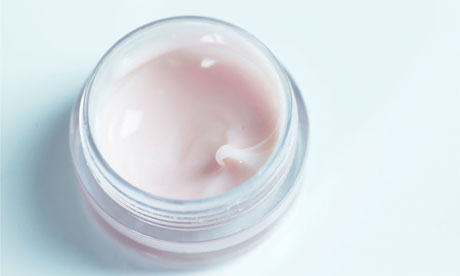
There's so much hype around moisturisers that you have to wonder how good they really are. How can a potion revive skin that has been battered by cold winds and dried up from the central heating? As we get older our skin becomes more dry and wrinkly. So can a moisturiser rid your skin of the fine lines of ageing and plump it up to its teenage glory days? And does an expensive jar of exclusive cream do anything more than a cheap pot from the supermarket?
The solution
Moisturisers contain humectants (eg glycerine) that attract water and keep it in the skin. They also contain emollients and are usually blended with oils then emulsified into a cream, which acts as a barrier against external irritants.
Between the cells in the outer layer of skin are sebum and lipids that give the skin its fresh, plump look. As we get older we lose these and our skin looks dull and dry. Moisturisers, by rehydrating the skin, refill the cell space.
"By attracting water back into the epidermis your skin transmits light differently," says Dr Jane McGregor, a consultant dermatologist at Barts and the London NHS Trust. "It will feel better, the texture of your skin will be improved and it will not be so dry or itchy. But you don't need to buy expensive creams, a simple aqueous cream will do." Soap, says McGregor, dries skin out, which is why most dermatologists don't use it. Even water can cause chapping.
Simple moisturisers stay in the epidermis; they don't regenerate cells or get rid of fine lines. But some more expensive products claim to do both. Retinoids were originally used to treat acne but have now been incorporated into cosmetic creams. "The exact way in which retinoids work is not fully understood," says Dr Bav Shergill, spokesman for the British Association of Dermatologists. "There is some evidence to support their role in stimulating the production of collagen in the dermis, which may plump out fine lines. They also seem to increase the cell turnover in your skin, which smoothes the appearance of skin by exfoliation and improving skin tone. Retinoids are essentially a vitamin A derivative and in terms of concentration a dermatologist would prescribe something that was 0.025% concentrate." This is considerably higher, says Shergill than the amount in cosmetic creams. "Retinoids do have their downsides – they can make skin red, sore, flaky and irritated." They can also make your skin more sensitive to UV light and effects vary between people.
There are so many skin creams that make extravagant claims but few research papers to support them. As your skin continues to flake in this cold snap all you need is a cheap tub of moisturiser to make it glow again.

